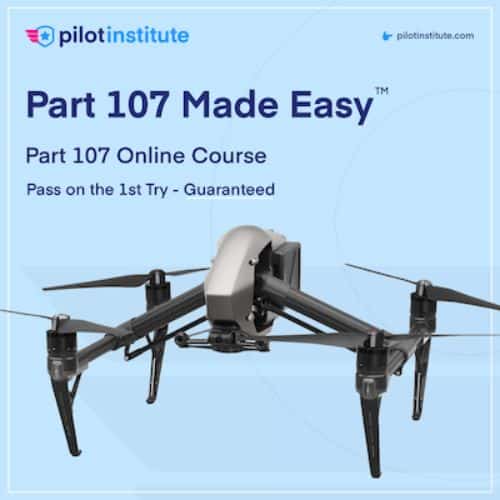If you’re new to the drone world, you might be wondering if you need a license to fly your drone. The answer is that it depends on how you plan to use your drone. If you’re flying for fun, you don’t need a license, but you may still need to register your drone. However, you will need a license to use your drone for commercial applications and make money. Keep reading to learn more about when you need a drone license and how to get one.
Do I Need a Drone License?
It all depends on where you live and how you will use your drone. For example, if you live in the USA, you do not need a license to fly drones for recreational purposes.
If the drone is less than 250 grams and you only intend to fly it for recreational purposes, you do not need to register the drone. If it weighs over 250 grams and is less than 25kg, you must register it and ensure that your registration details are labelled on the drone.
However, you will have to take and pass The Recreational UAS Safety Test (TRUST), issued by an FAA-approved test administrator.
If you plan on using the drone for commercial applications like drone photography, drone mapping or the many other ways people make money with drones, you will need to obtain the Part 107 certificate from the FAA.
To obtain a Part 107 certificate, an individual must pass an aeronautical knowledge test comprising 60 multiple-choice questions, of which candidates will require at least 70% to pass. The test covers topics such as regulations, weather, navigation, and emergency procedures. Once the Certificate is issued, the operator must comply with specific requirements and restrictions.
There are specific requirements that must be met before obtaining the Part 107 certificate; these include the following:
1. Be at least 16 years of age.
2. Be able to read, speak, write and understand English.
3. Pass a TSA security background check.
4. Pass the aeronautical knowledge test at an FAA-approved testing centre.
Once passed the test, the individual will receive a Remote Pilot Certificate (RPC), which is valid for two years; more information can be found on the FAA website.
In the UK, it’s different; there is no distinction between flying a drone for recreational or commercial purposes. Whether you require any license will be determined by the drone’s weight, if it has a camera, how close you will fly to other people and the risk involved.
If the drone is under 250 grams, is classed as a toy and has no camera, registration is not necessary. However, if it weighs under 250 grams and has a camera, you will need to obtain an Operator ID from the CAA and follow the drone code issued by the CAA.
For all drones over a weight of 250 grams, the owner must obtain both an Operator ID and a Flyer ID. Getting a Flyer ID will require the person to pass an online test from the CAA and is entirely free.
You may need additional permission from the CAA if you want to fly closer to people than what is recommended in the drone code. These additional permissions, like the A2 Cofc and GVC, can be obtained from CAA-recognised assessment entities (RAEs).
How Much Does It Cost To Get A Drone License?
The cost to obtain a Part 107 certificate varies, as it includes the cost of study materials, training, and the test fee. The test fee is $175 and is paid to the FAA at the time of the test. The cost of study materials and training can vary but can range from around $50 to several hundred dollars, depending on the training provider. Overall, it will cost about $175 to $400 for the Part 107 certification.
There are plenty of Part 107 courses and study guides, and the FAA provides some free material, but for people who like a more structured approach, there are plenty of paid training courses that will increase your chances of passing the first time.
One of the best Part 107 training courses is from the Pilot Institute. The course costs $149, and students have a success rate of 99%. They even offer a full refund should you fail to pass the first time.
In the UK, there is no cost to obtain the Flyer ID; it’s a free exam that is completed online. However, there is a fee to get the Operator ID with an annual fee of £10.
However, depending on the level of risk and where you want to operate, you may also need the A2 Certificate of competency (A2 Cofc) or the General visual line of sight certificate (GVC). These will have to be obtained through CAA-approved third-party entities, also known as RAEs. There are 33 RAE, and the cost to obtain these certificates varies but is usually between £100-£500.
One of the best drone training providers in the UK is UAVHUB, they were one of the first to get approved by the CAA for RAE status. The training is provided by experienced instructors who have a deep understanding of the UK drone industry and regulations and practical experience in flying and operating drones.
What Are The Benefits of Obtaining a Drone License?
Having a drone license, such as a Part 107 certificate in the United States or a Flyer ID in the UK, can provide several benefits for commercial drone operators. Some of these benefits include:
- Legal compliance: Holding a drone license demonstrates compliance with regulations and laws regarding drone operation.
- Increased job opportunities: Many companies and organizations require drone operators to have a license before hiring them.
- Reduced liability: Holding a license demonstrates that the operator has the knowledge and skills necessary to operate a drone safely, which can reduce the risk of accidents and liability.
- Professionalism: Having a license demonstrates a level of professionalism and commitment to the industry.
Overall, a drone license can open up more job opportunities and increase the flexibility to operate in different areas; it can help to reduce the risk of accidents and liability, it can demonstrate compliance with laws and regulations, and it can demonstrate professionalism to clients and employers.
Final Thoughts
Getting a drone license is essential to becoming a professional drone operator. Depending on the type of operation, different permissions and certifications may be required.
Therefore, it is highly recommended that all operators research and obtain the appropriate training and licensing before operating any drone for commercial purposes. Doing so will help to ensure safe and legal operation.
To do so, visit the FAA website for US operators or the CAA website for UK operators to learn more about obtaining a drone license. There is also plenty of online resources available to help with studying and preparing for tests. Good luck!


